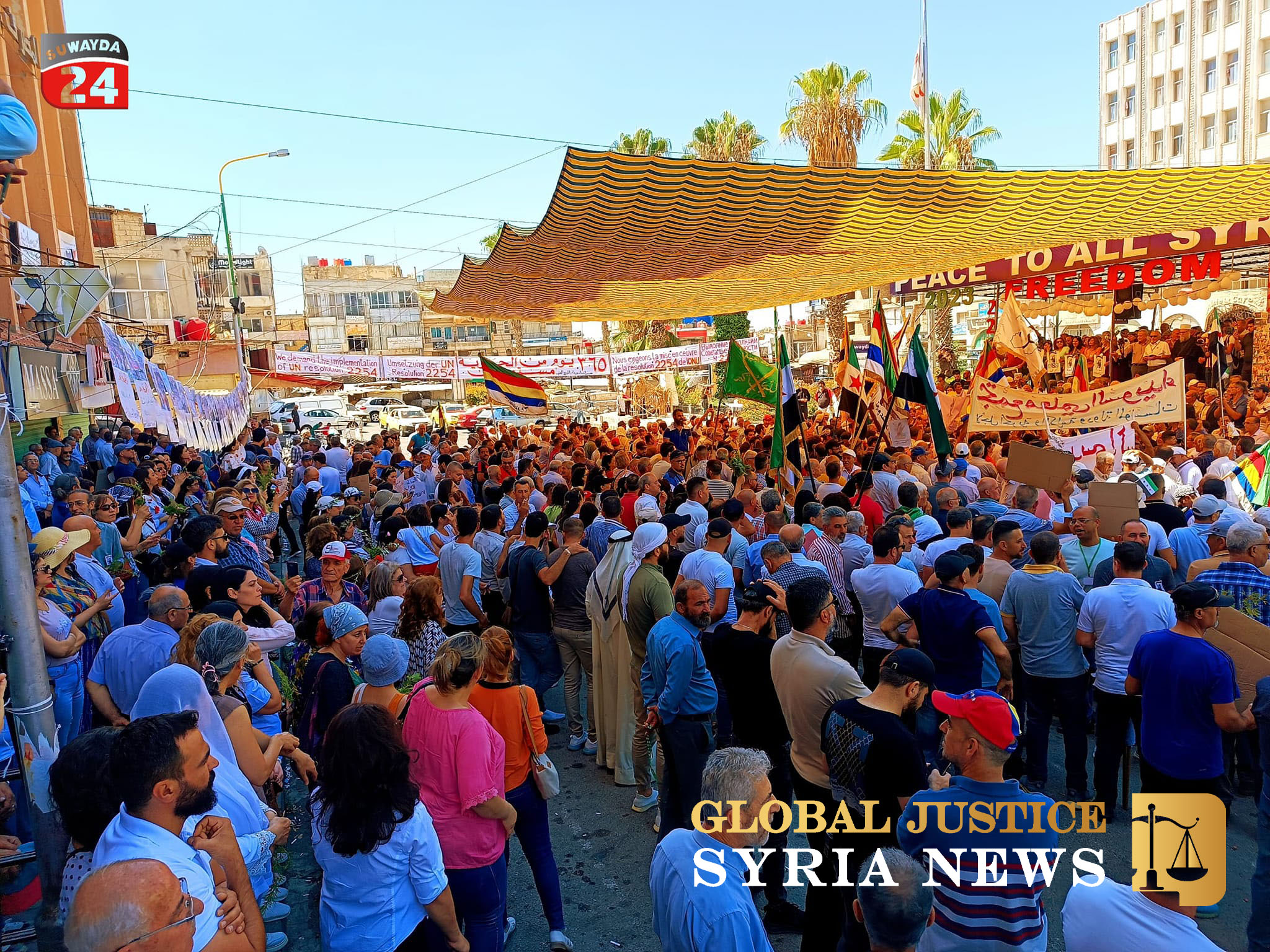Today marks the one-year anniversary of the protests in Suwayda, Syria. The small southwestern province, home to a Druze majority—a religious sect with Islamic origins—now stands as a symbol of resilience and dignity. On August 17th, 2023, citizens, fed up with the Syrian regime and the increasing economic pressures, began holding public rallies demanding freedom and democracy. In the early days, thousands gathered in the city center, peacefully protesting and calling for Bashar al-Assad to step down, the release of political prisoners, and the establishment of a free and democratic Syria.
The Suwayda protests were rooted in widespread discontent over economic hardships and political repression. As rampant poverty and shortages of basic necessities like electricity and water worsened, the patience of the people wore thin. “The economic concern is essential because people are living in poverty and facing shortages of almost everything. Electricity, water, and other basic needs are being neglected by the regime, and the excuse is always the sanctions,” said Yahya al-Aridi, a prominent Syrian academic and opposition figure, in a recent interview with Global Justice. He emphasized that the regime’s neglect and deliberate marginalization of Suwayda had fueled the people’s anger and desire for change.
Suwayda’s relationship with the Assad regime has always been a tense one. While the province did not rise up against the regime in 2011, its refusal to fully comply with the regime’s demands, such as sending tens of thousands of young men to serve in Assad’s army, created deep animosity. This animosity became evident when ISIS attacked Suwayda in 2018, and the regime implied that Suwayda’s lack of military support for the regime was to blame.
Since then, Suwayda has risen up in protest in short bursts. In 2020, protesters called for an end to rampant corruption and the withdrawal of Iranian militias and Russian troops from the region. In early 2022, peaceful protests broke out again for similar reasons. But in July of 2022, the protests intensified.
On July 26th, 2022, protesters stormed the headquarters of Raji Falhout, a regime intelligence branch. They demanded an end to widespread government corruption amid economic suffering. This raid successfully expelled all members of the intelligence branch from the city. The 2023 protests are significant because citizens have relentlessly protested every day for a year. These most recent protests are not an outlier but simply the continuation of a pattern, a pattern that shows that Suwayda will not stand for the corporation and violence of the Assad regime.
In July, Suwayda held its first ever free and democratic election to form an independent political body that represents their interests and has continued to call for a peaceful transition of power in Syria. These actions send a powerful message to the Assad regime and the world: that true democracy and respect for human rights are possible, even in the most difficult circumstances.
“With the spark of Suwayda and these protests and these elections, hopefully, it will inspire others. Suwayda’s stance is the right one, and it deserves to be respected, especially when the goals are clear and pursued collectively,” said al-Aridi, reflecting the hope that Suwayda’s example will resonate beyond its borders.
As we commemorate the one-year anniversary of the Suwayda protests, it is crucial to recognize the courage and resilience of the people who continue to stand up against tyranny. Their struggle is a reminder that the quest for justice and freedom in Syria is far from over, and that every act of resistance brings the country one step closer to a better future.



















